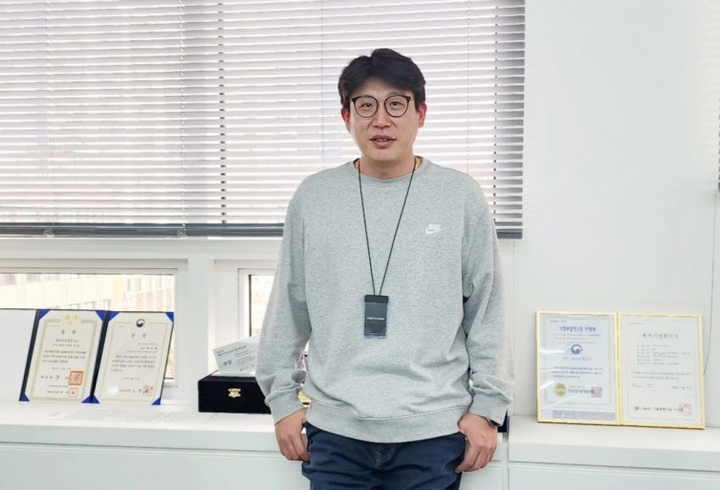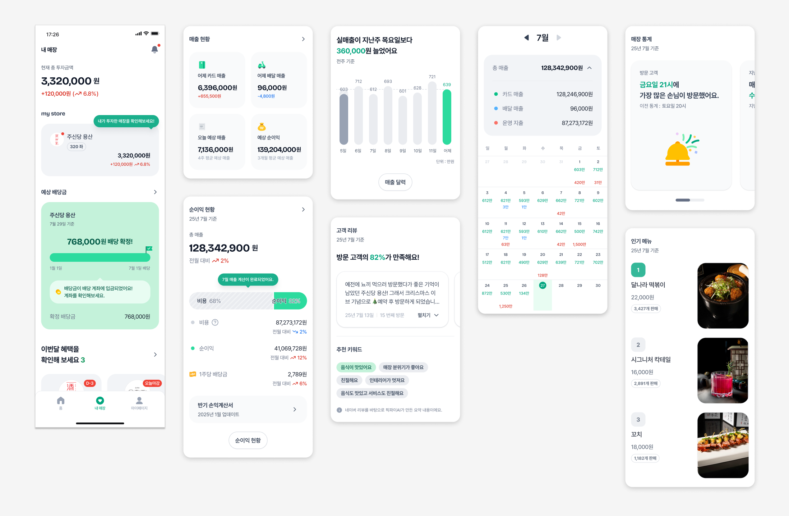For a long time, the commercial real estate market was shrouded in thick fog.
With vague expectations that “commercial properties here are always like this,” small business owners hoping to acquire a single store and investors searching for the best investment location were forced to bet on an uncertain future. Key money was practically in the dark. Unreasonable practices and rule-of-thumb calculations frustrated many. The same was true for commercial property sales. Clear information about potential profits in these areas was lacking, and developers often passed on the risk by offering rosy projections. Information asymmetry and opaque transaction practices were endemic to the commercial real estate market.
But this environment is gradually changing. Oasis Business, a proptech company, aims to pioneer uncharted territory using AI, ushering in an era where anyone can transparently and rationally predict and invest in real estate value.
Beyond simply providing information, the company uses sophisticated AI-based sales forecasting technology to reveal the “future profitability” of commercial real estate. It then connects this prediction with actual financial activities, building a unique PropFinTech model that captures the industry’s attention.
While commercial real estate valuation has always been crucial, the process has been subjective and opaque. In the past, valuations relied primarily on “comparisons with previous transactions” in nearby commercial properties, a practice that clearly failed to adequately reflect a store’s actual viability and future profitability. Oasis Business confronted this structural problem head-on.
An Entrepreneur’s Vision: A New Journey for PropFinTech
For AI-based proptech to go beyond providing information and directly intervene in real-world assets, it requires not only data-driven predictions but also organizational capabilities to translate these predictions into actual investments and transactions.
To realize this vision, Oasis Business established a specialized commercial real estate brokerage firm. This is interpreted as a strategic move to practically integrate Delphi algorithm-based profit-return method valuation into investment and transaction processes.
Moon Wook (47), CEO of Oasis Business, graduated from the Department of Architecture at Chung-Ang University and the Graduate School of Real Estate at Konkuk University, cultivating expertise in architecture and real estate. After eight years working on domestic and international architectural projects at Hyundai Engineering & Construction, he led major development projects at Naver, including the Pangyo headquarters building, “1784.” His decision to choose entrepreneurship over a stable career at a large corporation stemmed from a deep concern about the “information asymmetry” associated with opening a store.
“I started to doubt whether I could work for a large corporation my entire life. Then, I suddenly saw the reality of people trying to start a business suffering from information asymmetry. I wanted to solve this problem with technology.”
CEO Moon Wook’s one-liner explains everything about Oasis Business. While it initially began as a platform connecting entrepreneurs, brokers, and franchise headquarters, it now focuses on revolutionizing the entire commercial real estate market through data-driven innovation.
“The traditional method was merely an ’emotional’ valuation,” he explained. “But the value of commercial real estate depends on how much revenue the space can generate.”
Oasis Business’ solution is “DELPHI,” an AI-powered sales forecasting technology. Delphi collects over 200 million data points monthly, including data from credit card companies, telecommunications companies, and public data sources. Based on this data, it analyzes approximately 3,100 derived variables. Rather than relying solely on past sales data, it precisely reflects current market trends, economic variables, floating population, and even the locational characteristics of specific parcels.
CEO Moon Wook stated, “We have an independent model that applies weights to each parcel nationwide, ensuring we don’t miss even the slightest changes in local commercial districts.” Through this sophisticated analysis, Delphi forecasts a store’s future sales and, based on this, provides a “profit-backed valuation” approach. In other words, it allows us to determine how much profit a store will generate in the future and, based on that revenue, determine the appropriate rent, sale price, and key money.
Delphi 2.0 boasts a prediction accuracy of 88-96%. Its reliability has been proven across a wide range of industries, including large financial institutions, franchise headquarters, and construction companies. It even predicts store closure risks and is used by financial institutions for alternative credit scoring (CSS) and by franchise headquarters for store opening decisions.
Oasis Business’s technological prowess extends beyond the Delphi AI engine, evolving into solutions for a diverse range of players in the commercial real estate market.
Cremao, a data-driven business evaluation tool
Cremao is a commercial real estate feasibility assessment solution for B2B clients, including construction companies, developers, and financial institutions. Based on the profit-return method, it quantitatively analyzes the profitability of a store, helping to determine the appropriate selling price and projected profitability from the early stages of real estate development.
Over 3,000 companies have signed up, and Cremao offers a customized, rather than subscription-based, service optimized for each client’s needs. CEO Moon Wook emphasized, “Cremao is positioning itself as a practical tool that enables rational, data-driven decision-making, transcending traditional qualitative judgments.”
Money Viewer for successful franchise openings
MoneyViewer is a B2B market analysis solution for franchise headquarters. AI analyzes sales data from existing stores to provide projected sales and target customer segments for new locations. This allows headquarters to develop data-driven store opening strategies and utilize the tool as a pre-qualification tool for potential franchise locations. The ability to compare sales patterns with competing brands within the same market provides key insights for increasing franchisee sales and effectively reduces store opening risks.
The “Sseuda” app removes the opacity of royalties.
Key money is one of the most opaque and controversial areas of commercial real estate transactions. This solution dramatically improves the reliability and transparency of key money calculations by incorporating blockchain technology. When small business owners link their sales and expenses registered in Hometax, accounting ledgers are automatically created, and these ledgers are managed by affiliated tax and accounting firms. Because these blockchain-based ledgers are tamper-proof, they enable objective key money estimation based on real data.
Users can receive a key money report and a comparative index of similar commercial areas. Furthermore, actual store transfer transactions can be linked through Oasis Business’ brokerage firm.
The pinnacle of prop fintech: the piecemeal investment platform “Pickpay.”
Oasis Business’s innovation extends beyond general information and consulting to include a financial model that allows consumers to invest in commercial real estate and share in the profits. At the heart of this innovation is “Pickpay,” a local brand investment platform.
This approach offers a structural differentiation from the traditional, one-way approach to store investment. CEO Moon Wook explained, “Conventional franchise and store investments often require individuals to shoulder all the risks. They often begin with a lack of information and vague expectations. PickPie has designed a sophisticated cycle that encompasses data-driven verification, physical store openings, real-time sales monitoring, and profit distribution.”
PickPie’s distinctive feature is its sales-based dividend structure. It uses Delphi-verified sales forecast data as the basis for investment decisions. Investors access real-time sales data regularly released by stores, and receive actual dividends every six months.
This eliminates information asymmetry and provides investors with a transparent and trustworthy system. Consumers participate as co-founders and investors, growing the brand and store together. The investment funds are used for store operations, and consumers can witness the growth of their favorite brands and even share in the actual profits.

The recently officially opened Shinsungdang Yongsan is Pickpay’s first investment store and the first flagship project planned by Oasis Business. This store represents the starting point for Pickpay’s market entry, embodying the entire Pickpay business cycle: brand selection, sales forecasting, store opening, investment attraction, and dividends.
CEO Moon Wook stated, “Shin Dang Yongsan is not simply a restaurant, but a crucial project that tests and validates our Pickify business philosophy.” He added, “Based on the sales data obtained here, we are preparing a public offering process to ensure investors have confidence and invest.” Pickify plans to expand this approach to discover various local brands and, after thorough verification and planning, launch its second product within the year.
Innovation Beyond Regulation and Synergy of Public Collaboration
Oasis Business has previously pursued the securitization of real assets (STO, tokenized securities issuance) through a business feasibility assessment based on future sales of stores. Through financial collaboration with Hana Securities, the company has reviewed various business structuring options and consistently explored the practical possibilities of leveraging sales-based assets.
After comprehensively assessing the institutional conditions and feasibility of the investment structure, we chose the civil law partnership model. This approach ensured legal stability and flexible participation, while also creating a new alternative investment model that connects investors with real assets. The first examples are “Pickpay” and “Jinshindang Yongsan.”
He said, “We plan to challenge the institutionalization of STOs again as regulations evolve,” and “We are also preparing for global expansion, focusing on major Asian countries such as Singapore, where the STO market is active.”
Oasis Business is benchmarking the model of the US real estate information platform Zillow. Zillow is an innovative model that quantifies the future value of real estate based on data and connects transactions based on this data. However, implementing this structure in the Korean market presents significant hurdles.
Commercial real estate is difficult for general consumers and investors to access because actual transaction prices and revenue information are not publicly available. Oasis Business is addressing this information asymmetry with AI-based sales forecasting technology. By combining real-time data with an investment platform, we’ve established a structure that connects transactions and profit distribution.
As we continue to tackle these challenges, collaborations with public institutions have created significant synergy in Oasis Business’s technology diffusion and increased reliability. Winning the Presidential Award and the Minister of Land, Infrastructure and Transport Award at the “Government-wide Public Data Utilization Startup Competition” hosted by the Ministry of the Interior and Safety is a testament to Oasis Business’s technological prowess and spatial information innovation capabilities. Furthermore, through its three-year participation in the NIA-sponsored “Real Estate Big Data Platform and Center Construction Project,” Oasis Business contributed to the development of a data ecosystem by opening a total of 30 types of commercial real estate data, both free and paid.
We are providing commercial real estate-related data to the Seoul Metropolitan Government and the Korea Real Estate Board, and are exploring the direction of development of the AVM (Automated Valuation Model) model through the ‘AVM Council’ hosted by the Korea Proptech Forum.
Oasis Business’s Vision: A Data-Driven Financial Platform
So, what is the company’s ultimate positioning in the commercial real estate sector? When asked whether its core identity lies within a data company, a financial platform, or a transaction intermediary, CEO Moon Wook presented a clear vision.
“We’re focusing on a data-driven financial platform as our core identity. Beyond simple data analysis and information provision, our goal is to assess asset value based on AI predictive technology and expand this into financial activities, including actual investments and dividends.”
PickPie seeks to provide consumers with investment opportunities, local brands with growth capital, and brokerage firms with proven transaction opportunities. Furthermore, it implements a structure where data-driven value predictions generate tangible financial flows. The future they are creating goes beyond transactions, heralding the birth of a new real estate ecosystem where value is discovered and profits are shared.
Related





